The Health in a New Home panels will provide expert advice to guide the prioritisation, communication, dissemination and implementation of the study findings across all phases of the project.
Advisory panel
The Advisory Panel will comprise people with a refugee background, community leaders and representatives from peak bodies.
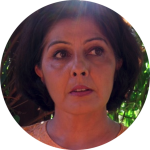
Nasiba Akram-Haidari OAM (Chair)
Nasiba is the Founder and Director of Yassna foundation, the founder/Director of Project Humanity, Deputy Chair of Refugee Community Association of Australia, member of the Soroptimist International of Hornsby, and member of Afghan Australian National Council
Awards
2005: ACNielsen Jnr Award of achievement.
2011: Afghan of the year award form (AYANA)
2013: STARTTS Humanitarian Award “Community Worker Category”
2013: Zonta International “Joint Award Winner”
2014: Australian Centre for Leadership for Women “Community Category” Silver
2015: Certificate of Nomination for the Australian of the year award.
2019: Afghan Community Support Association Appreciation Award
2019: Certificate of Appreciation Afghanistan Embassy Australia
2024: Order Of Australia Medal
Education
BA, Journalism (Kabul University)
E.F.A.S English (University of NSW)
Secretarial studies (North Sydney TAFE. College)
Certificate 4 Community work (Granville TAFE)
Diploma in Community Coordination (Granville TAFE)
NATTI accredited interpreter in 3 languages
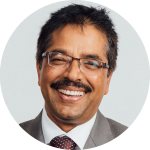
Om Dhungel, JP, FAICD, MICDA, MBA, B.Sc. Engg
Om Dhungel is a consultant, trainer and a mentor and a practitioner of Strength-Based Approach to refugee settlement and community engagement.
An author and an Honorary Adjunct Fellow at the University of Technology Sydney (UTS), Om combines his cross-sectoral professional expertise and rich lived experience to help shift thinking and create the momentum for change.
Om is passionate about helping individuals and organisations in exploring and unleashing their full potential. A Fellow of the Australian Institute of Company Directors, he serves on different Committees and Boards including the NSW Health Ministry, NSW Police, Multicultural NSW and Blacktown City Council. Further info: omdhungel.com.
Tina Dixson
Tina Dixson (she/her) is an academic, activist and social policy professional. Her doctoral research focused on the lived experiences and narratives surrounding the forced displacement and violence faced by queer and trans women. Her academic journey delves into various fields, including trauma theory, gender studies, migration studies, and queer theory.
In 2012, Tina, along with her partner Renee Dixson, was compelled to leave Ukraine due to their impactful work in advancing LGBTIQ+ human rights. They found a new home in Australia, where Tina has been actively involved in the co-founding of the Forcibly Displaced People Network. Her contributions extend to numerous projects addressing issues of LGBTIQ+ displacement, both within Australia and on the global stage. Currently, Tina works for the ACT Government in the areas of social policy and inclusion.
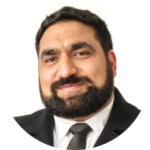
Basim Alansari
Basim Alansari's journey began as a child refugee seeking asylum with his family, finding stability in Australia on a temporary protection visa. He navigated the challenges of Australian policy at the time, initially accessing education as an international student due to restrictions on domestic student entitlements for humanitarian refugees. Overcoming multiple uncertainties, he emerged as a respected leader in Australian healthcare.
Raised in a lineage of Iraqi scholars and poets, Basim's upbringing cultivated fluency in Arabic, Persian, and English. His academic pursuits encompass Management, History, Philosophy of Science, Bioethics, Medicine, and International Public Health, reflecting his diverse intellectual interests.
Basim leads with a modern, multidisciplinary approach, shaping advancements in healthcare and disability sectors. In addition to his executive roles, he actively engages in governmental committees, community boards, and university advisories.
His journey epitomises resilience, cultural depth, and the transformative impact of education, inspiring and advocating for diverse communities.
Abolhassan (Freidoon) Khavarpour
Freidoon has a long-standing career in community work and public health in Australia. He was Senior Lecturer, Honour Programme Coordinator and Head of Discipline, School of Indigenous Health Studies at the University of Sydney for more than two decades. He taught at undergraduate, supervised students at postgraduate level and researched in various areas, pertinent to the Indigenous issues.
Freidoon was member of Cabramatta Migrant Resource Centre, Trans-Cultural Mental Health Centre and chaired the management committee at North Ryde Community Aid & Information Centre (NRCA).
Freidoon has several successful grants and publications in areas of Aboriginal health and culturally and linguistically diverse community (CALD).
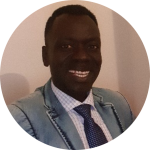
Daniel K Apat
Daniel K Apat is the Multicultural Health Youth Program Officer at Multicultural Health Services, Western Sydney Local Health District (WSLHD). His role involves project work, delivering evidence-based health programs, and providing demographic and health data, with a particular focus on the health issues and needs of youth from Culturally and Linguistically Diverse (CALD) and refugee backgrounds. His work contributes to and informs WSLHD's Multicultural Health planning and strategy. Daniel collaborates across WSLHD and partners with non-government organisations, government agencies, and CALD and refugee communities to promote health and improve access to health services.
Daniel himself is a former refugee from South Sudan, having migrated to Australia in late 2005 on a humanitarian visa. He holds a Bachelor of Arts in Psychology from Western Sydney University (WSU), a Postgraduate Diploma of Psychology from Murdoch University (MU), a Certificate IV in Training and Assessment from National College Australia, and a Master of Social Work - Professional Qualifying from Southern Cross University (SCU).
With diverse professional experience, Daniel's particular interest lies in mental health and the general wellbeing of CALD young people, informed by his lived experience as a refugee.
Mujgan Tahery
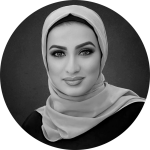
Mujgan Tahery is the visionary CEO and Founder of the Uniting Circle Multicultural Community Centre, an organization dedicated to fostering inclusivity and cultural understanding within diverse communities. With a profound passion for social justice and community development, Mujgan has dedicated her career to empowering individuals from various backgrounds through education, support services, and cultural programs.
Under Mujgan's leadership, the Uniting Circle has emerged as a vital resource for promoting multiculturalism and collaboration, effectively bridging gaps and building connections among different cultural groups. Her commitment to community engagement and her innovative approach to addressing the needs of culturally and linguistically diverse (CALD) communities have positioned the Uniting Circle as a cornerstone for positive change and unity.
Mujgan's vision extends beyond mere representation, she actively cultivates a welcoming and inclusive environment for all, including Aboriginal and Torres Strait Islander peoples. The Centre's mission is to establish a vibrant space that facilitates connection, resource sharing, and engagement through meaningful educational programs and social services.
Through a diverse array of community events, Mujgan and her team aim to foster inclusivity and mutual understanding, celebrating the rich tapestry of cultures that enrich our society. They invite everyone to join in their dedication to building bridges and strengthening community ties, particularly within the Western Sydney region, as they collaboratively strive to create a harmonious and interconnected environment.
Mujgan Tahery’s unwavering commitment to social equity and community empowerment continues to inspire those around her, making a lasting impact on the lives of individuals and families within her community.
For more information visit www.unitingcircle.org.au or contact ceo@unitingcircle.org.au
Translation panel
The Translation Panel will comprise diverse representatives’ people from peak body organisations, health services, settlement services and community services in Sydney and Melbourne.
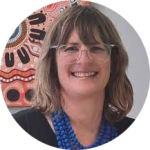
Cathy Preston-Thomas (Chair)
Cathy Preston-Thomas (MIntSocDev, MIntLaw) is the Deputy Director of the NSW Refugee Health Service.
She has been involved in various aspects of the refugee sector for nearly 25 years: in community development, policy, project management, research, and training.
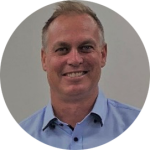
Nathan Burbridge
Nathan Burbridge brings nearly two decades of leadership experience in the government and non-profit sectors to the Translation Panel, focusing on services for culturally and linguistically diverse (CALD) communities and other vulnerable groups. Educated at Western Sydney University and the University of Sydney, Nathan has played influential roles at the Western Sydney Migrant Resource Centre (WSMRC) and SydWest Multicultural Services Ltd, where he led initiatives to improve program delivery and significantly expand home care services.
His efforts in enhancing home care service health outcomes, including the development of the care workforce and strengthening allied health support for clients, demonstrates his commitment to providing responsive and sustainable solutions for CALD communities.
In addition, Nathan has contributed his expertise to the boards of the Sydney Zoo Foundation and BREED Australia Incorporated. At the Sydney Zoo Foundation, he focused on enhancing community connections to the environment, promoting educational and conservation initiatives. At BREED Australia, Nathan centred his work on improving the mental health and resilience of young people through education programs; furthering community engagement that align organisational goals with community needs.
Nathan's extensive experience in strategic program management, community service, and enhancing health outcomes makes him an invaluable member of the Translation Panel. His background equips him to offer expert advice in guiding the prioritisation, communication, dissemination, and implementation of the study findings, aligning with the panel’s objectives to transform health service approaches for refugees and their communities.
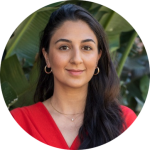
Delaram Ansari
Delaram (She/Her)is the Research, Advocacy and Policy Manager at Multicultural Centre for Women’s Health focusing on issues that impact the health, wellbeing and safety of migrant and refugee women. She is a mixed-methods public health researcher, trainer, and human rights advocate with extensive experience in intersectional feminist research, policy, and practice.
Delaram is currently leading various health equity projects relating to mental health, violence against women, and sexual and reproductive health of migrant and refugee women in Australia. Delaram has a Master of Public Health, specialising in Health Policy, Systems and Practice with a focus on Gender and Women’s Health.
Desiree Leone
Dr. Desiree Leone a Team Leader at Multicultural Health Services in Western Sydney Local Health District. She was a drug and alcohol counsellor and researched and taught in this area.
Desiree is interested in improving the health of vulnerable populations including refugees and asylum seekers and LGBTQ+ communities.
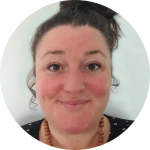
Jasmine Phillips
Jasmine Phillips is a community development and engagement expert and a qualified interpreter. She has extensive experience working in Australia and internationally with culturally and linguistically diverse communities, specifically refugees and people seeking asylum. Jasmine is passionate about community-led, strength-based, intersectional practice and cultural safety.
Since 2017, Jasmine has worked at cohealth where she developed and continues to lead the bicultural program. Through this role, Jasmine has worked in collaboration with bicultural workers from diverse refugee backgrounds to develop the professional standards for bicultural work, policies, tools and training to build sector capacity to employ bicultural workers in ways that are culturally safe, and community led. Jasmine and her team also host a network of over 250 bicultural workers from across Victoria and offer targeted capacity building, peer support and reflective practice for these workers.
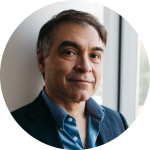
Jorge G. Aroche
Jorge G. Aroche is a clinical psychologist and the Chief Executive Officer of the NSW Service for the Treatment and Rehabilitation of Torture and Trauma Survivors (STARTTS). Jorge has worked with migrants and refugee survivors of torture and organized violence since before 1989, when he joined STARTTS. He has led the organization since March 1997, through some of the most challenging times for refugee services in Australia, helping STARTTS grow from a dozen staff to more than 300, assuming a truly state-wide role and becoming a world leader in this field in the process.
Jorge is a member of the Executive Committee of the Forum of Australian Services for Survivors of Torture and Trauma (FASSTT) and was President of the International Rehabilitation Council for Torture Victims (IRCT) between 2016 and 2020. Previous posts include that of Secretary General of the International Society for Health and Human Rights (ISHHR) (until 2012), and Vice President of the IRCT (until 2012). He has also been appointed to a number of positions in government advisory bodies and NGO boards.
In addition to his executive role Jorge continues to be actively involved in clinical and research activities at STARTTS and has presented widely on clinical and settlement issues for traumatised refugees on national and international platforms. He has also authored and co-authored several articles and book chapters on these topics.

